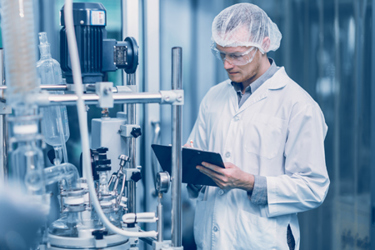Next-Generation Biomanufacturing: Process Intensification For Monoclonal Antibody Production

Monoclonal antibody (mAb) production, while well-established, still presents opportunities for process intensification to improve efficiency, scalability, and sustainability. Upstream improvements include high cell density strategies, optimized seed trains, and the use of concentrated fed-batch or continuous perfusion systems. Downstream advancements such as high-affinity resins, modern polishing techniques, and innovative chromatography platforms further streamline production and improve product quality.
Key to upstream intensification is the development of chemically defined media and feeds tailored to CHO cell lines. Omics-driven approaches, particularly metabolomics and proteomics, have enabled the creation of targeted media formulations that enhance specific productivity and yield. These media are also designed for ease of use, with faster dissolution and automated pH adjustment capabilities.
For perfusion applications, high-intensity media support elevated cell densities and consistent productivity, offering flexibility across different CHO lineages and perfusion strategies. Bioreactor innovation also plays a crucial role, with single-use systems providing superior mixing, mass transfer, and scalability. High turndown ratios enable streamlined seed trains and reduced process time. Together, these innovations in media, feed systems, and bioreactor design significantly improve mAb production by increasing throughput, reducing costs, and simplifying workflows, making biomanufacturing more efficient and commercially viable at scale.
Get unlimited access to:
Enter your credentials below to log in. Not yet a member of Bioprocess Online? Subscribe today.
